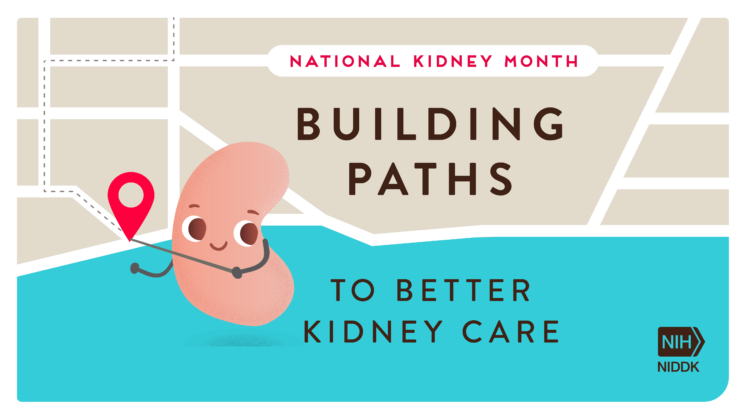March is declared National Kidney month and March 22nd is Diabetes Alert Day. Diabetes is a major risk factor in kidney disease. Did you know approximately 88 million people 18 years old and older have a condition called prediabetes, meaning their blood sugar is higher than normal, but not high enough to be diagnosed as diabetes.
The National Kidney Foundation is involved with many aspects of kidney health to help raise awareness of kidney disease in its early stages, building standardized terminology and treatment guidelines to enhance the lives of everyone with, at risk of or affected by kidney disease.
Since the introduction of the the Kidney Disease Outcomes Quality Initiative (KDOQI) guidelines, a 33% reduction in mortality among end stage renal disease patients and over 26% reduction in mortality among dialysis patients has been noted. For easy access to these guidelines, you can download the National Kidney Foundation KDOQI app.
Are you wondering how healthy are your kidneys? Take this quick quiz to find out.
1 in 3 adults in the Unites States is at risk for kidney disease. 90,000 people in the United States are waiting for a kidney donation today with the average waiting time 3 to 5 years.
When is a kidney donation needed?
A kidney transplant is used to treat kidney failure (also called end-stage renal disease, ESRD), a condition in which kidneys can function at only a fraction of their normal capacity. People with end-stage kidney disease need either dialysis or a kidney transplant to stay alive.
Causes of kidney failure may include diabetes, polycystic kidney disease (PKD), chronic uncontrolled high blood pressure (hypertension), or chronic glomerulonephritis (an inflammation and eventual scarring of the glomeruli — the tiny filters within your kidneys).
Who can be a living donor?
Family members are often the most likely to be compatible living kidney donors, but many people undergo successful transplants with kidneys donated from people who are not related to them. Living donors will have a full medical exam, must be at least 18 years old, and in good physical and mental health. Different transplant centers have different limits on who can donate. The Kidney Transplant Learning Center offers resources on how to prepare to make the living donor ask and/or to have a family member or friend serve as a living donor champion.
For more information on kidney donation visit Donate Life’s Kidney Donation Page.
More education and resources:




